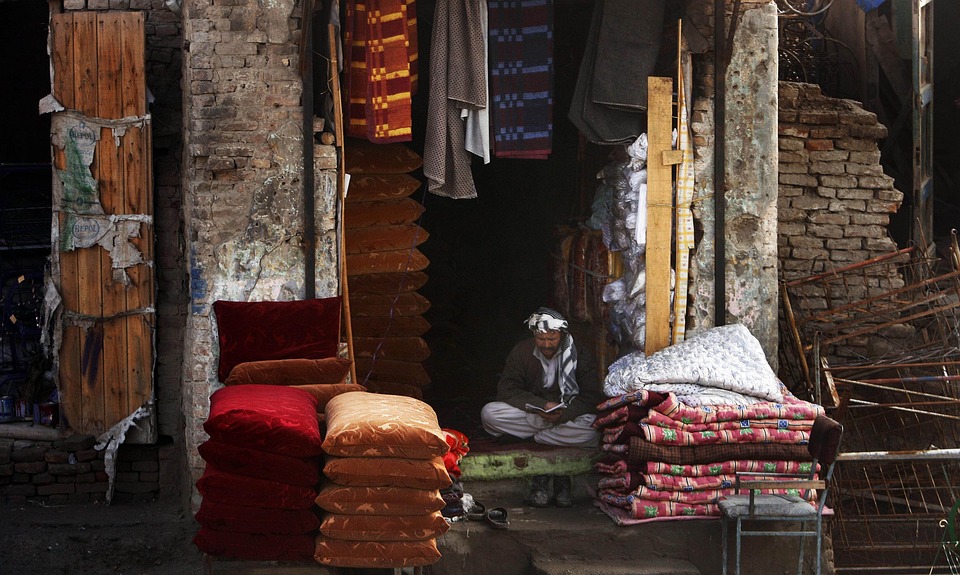The governing Taliban administration in Afghanistan is set to push for self-sufficiency along with international trade and investment. The move follows the Taliban’s latest decrees that further put restrictions on women.
Speaking to Reuters, the Taliban’s acting commerce minister Haji Nooruddin Azizi said the administration would start a self-sufficiency program in the country to encourage the people to buy local products and even promote the initiative to worshippers in mosques. Azizi added that products that can help further the initiative would be supported.
Azizi also cited that foreign trade and investment are another part of the administration’s strategy.
“Those who were importing items to Afghanistan from abroad, they are asking us to provide opportunities for investing in Afghanistan and they want to invest here instead of importing from abroad,” said Azizi, citing that countries such as Iran, China, and Russia are interested in trade and investment in Afghanistan. Azizi said that some of the projects that are in discussions include Chinese industrial parks and thermal power plants, with involvement from Russia and Iran.
The Taliban administration still lacks formal recognition from the international community, and the recent attacks by the Islamic State militant group have prompted some potential investors to re-think about investing in Afghanistan. Azizi assured that authorities are working to ensure security in the country.
“We do our best for businessmen to not come to harm. The attack hasn’t had any bad impact, if it happened constantly, yes it might have a bad impact,” said Azizi.
The Taliban is facing increased isolation following its latest set of restrictive policies, ordering universities to bar women from attending and ordering NGOs to bar its female workers. Both policies led to condemnation even from predominantly-Muslim countries.
Last week, the United Nations announced that it has temporarily suspended some humanitarian programs deemed “time critical” following the decree and warned that other activities would likely be temporarily put on hold.
UN aid chief Martin Griffiths and other heads of several aid groups issued a joint statement making the announcement, stressing the importance of women’s participation in delivering aid and calling on the Taliban to reverse the decision.



 Ohio Man Indicted for Alleged Threat Against Vice President JD Vance, Faces Additional Federal Charges
Ohio Man Indicted for Alleged Threat Against Vice President JD Vance, Faces Additional Federal Charges  U.S. Lawmakers to Review Unredacted Jeffrey Epstein DOJ Files Starting Monday
U.S. Lawmakers to Review Unredacted Jeffrey Epstein DOJ Files Starting Monday  South Korea Assures U.S. on Trade Deal Commitments Amid Tariff Concerns
South Korea Assures U.S. on Trade Deal Commitments Amid Tariff Concerns  Missouri Judge Dismisses Lawsuit Challenging Starbucks’ Diversity and Inclusion Policies
Missouri Judge Dismisses Lawsuit Challenging Starbucks’ Diversity and Inclusion Policies  Trump Endorses Japan’s Sanae Takaichi Ahead of Crucial Election Amid Market and China Tensions
Trump Endorses Japan’s Sanae Takaichi Ahead of Crucial Election Amid Market and China Tensions  Trump’s Inflation Claims Clash With Voters’ Cost-of-Living Reality
Trump’s Inflation Claims Clash With Voters’ Cost-of-Living Reality  U.S. to Begin Paying UN Dues as Financial Crisis Spurs Push for Reforms
U.S. to Begin Paying UN Dues as Financial Crisis Spurs Push for Reforms  Trump Signs Executive Order Threatening 25% Tariffs on Countries Trading With Iran
Trump Signs Executive Order Threatening 25% Tariffs on Countries Trading With Iran  India–U.S. Interim Trade Pact Cuts Auto Tariffs but Leaves Tesla Out
India–U.S. Interim Trade Pact Cuts Auto Tariffs but Leaves Tesla Out  Pentagon Ends Military Education Programs With Harvard University
Pentagon Ends Military Education Programs With Harvard University  Japan Election 2026: Sanae Takaichi Poised for Landslide Win Despite Record Snowfall
Japan Election 2026: Sanae Takaichi Poised for Landslide Win Despite Record Snowfall  Jack Lang Resigns as Head of Arab World Institute Amid Epstein Controversy
Jack Lang Resigns as Head of Arab World Institute Amid Epstein Controversy  Trump Says “Very Good Talks” Underway on Russia-Ukraine War as Peace Efforts Continue
Trump Says “Very Good Talks” Underway on Russia-Ukraine War as Peace Efforts Continue  U.S.-India Trade Framework Signals Major Shift in Tariffs, Energy, and Supply Chains
U.S.-India Trade Framework Signals Major Shift in Tariffs, Energy, and Supply Chains  Trump Lifts 25% Tariff on Indian Goods in Strategic U.S.–India Trade and Energy Deal
Trump Lifts 25% Tariff on Indian Goods in Strategic U.S.–India Trade and Energy Deal  TrumpRx Website Launches to Offer Discounted Prescription Drugs for Cash-Paying Americans
TrumpRx Website Launches to Offer Discounted Prescription Drugs for Cash-Paying Americans  Trump Allows Commercial Fishing in Protected New England Waters
Trump Allows Commercial Fishing in Protected New England Waters 































